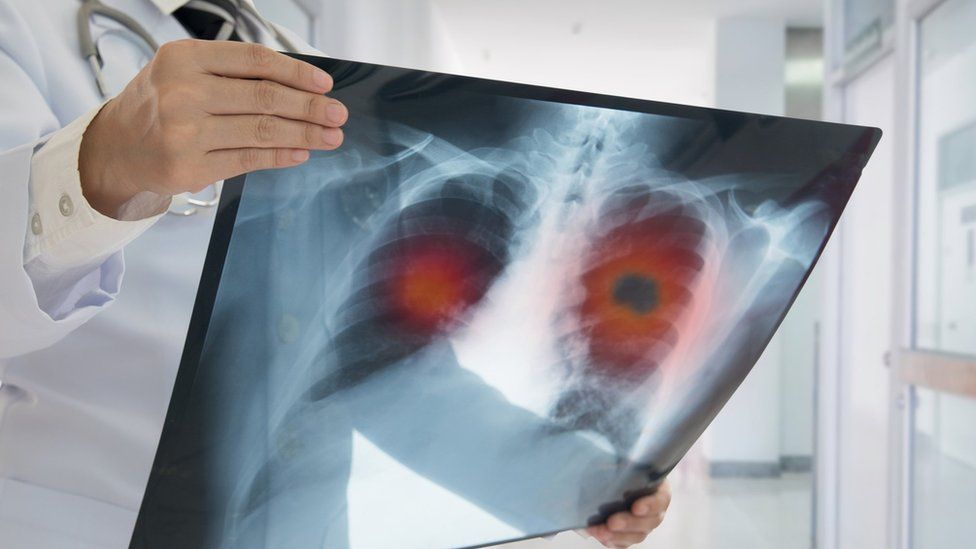Artificial intelligence diagnoses lung cancer
- Published

Artificial intelligence is better than specialist doctors at diagnosing lung cancer, a US study suggests.
The researchers at Northwestern University in Illinois and Google hope the technology could boost the effectiveness of cancer screening.
Finding tumours at an earlier stage should make them easier to treat.
The team said AI would have a "huge" role in the future of medicine, but the current software is not yet ready for clinical use.
The study focused on lung cancer, which kills more people - 1.8 million a year - than any other type of cancer.
It is why the US recommends screening for people at high risk because of years of heavy smoking.
However, screening can result in invasive biopsies for people who turn out not to have cancer, and also misses some tumours.
The study used artificial intelligence to see if the analysis of scans could be improved.
The first step was to train the computer software with 42,290 CT lung scans from nearly 15,000 patients.
The researchers did not tell the AI what to look for, just which patients went on to get cancer and which did not.
The AI was then tested against a team of six radiologists who made a career out of analysing CT scans.
It was more effective than the radiologists when examining a single CT scan and was equally effective when doctors had multiple scans to go on.
The results, in Nature Medicine, showed the AI could boost cancer detection by 5% while also cutting false-positives (people falsely diagnosed with cancer) by 11%.
Dr Mozziyar Etemadi, from Northwestern University, told the BBC: "The next step is to use it on patients in the form of a clinical trial."
He says what the AI is using to identify a cancer is a "little bit of a black box".
He added: "Sometimes it highlights a lung nodule (a growth) that for all intents and purposes looks benign but the model thinks it isn't.
"It's usually correct and one area of scientific inquiry is figuring out why."
Dr Etemadi says that AI and doctors working side by side would be even more effective and that AI had a "huge" role to play in medicine.
Rebecca Campbell, from Cancer Research UK, said: "It's encouraging to see new technological innovations that could one day help us to detect lung cancer early. Similarly to how we learn from experience, deep learning algorithms perform a task repeatedly, each time tweaking it a little to improve accuracy.
"Detecting cancer early, when treatment is more likely to be successful, is one of the most powerful ways of improving survival, and developing inexpensive technology which isn't invasive could play an important role.
"The next steps will be to test this technology further to see whether it can be applied accurately to large numbers of people."
Follow James on Twitter.
- Published22 February 2019
- Published24 January 2019
- Published13 February 2018